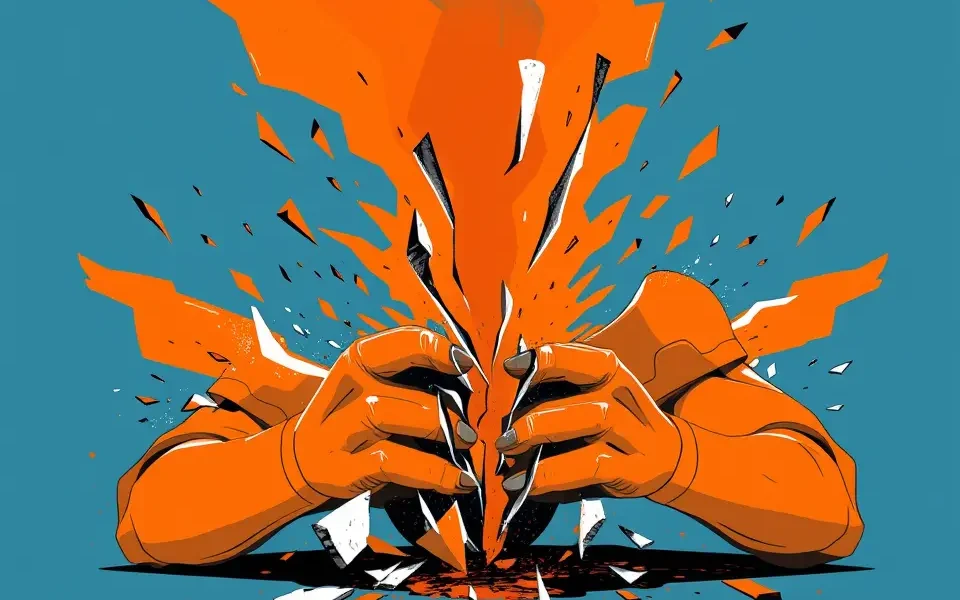Coco Gauff’s victory over Aryna Sabalenka in the 2025 French Open final was a momentous occasion, marking her second Grand Slam title and her first on the Parisian clay. However, the celebrations were quickly overshadowed by the controversy surrounding Sabalenka’s post-match comments. The World No. 1’s remarks have been described as “disrespectful” and “classless,” igniting a fiery debate within the tennis world about sportsmanship, humility, and the true essence of competition.
Gauff’s Triumph Over Sabalenka
In a thrilling final held on Saturday, June 7, 2025, Coco Gauff defeated Aryna Sabalenka in a hard-fought three-set battle. After dropping a tightly contested first set 6-7 (5-7), Gauff rallied to win the next two sets 6-2, 6-4, securing her first French Open singles title. This victory made Gauff the first American woman to win the Roland Garros title since Serena Williams in 2015 and the youngest American to achieve this feat since Serena in 2002.
Gauff’s path to victory was marked by resilience and adaptability. Despite struggling with windy conditions, she managed to capitalize on Sabalenka’s high number of unforced errors, which totaled a staggering 70 throughout the match. Gauff’s aggressive returns and consistent baseline pressure proved too much for Sabalenka, ultimately leading to Gauff’s triumph.
Sabalenka’s Controversial Comments
The controversy erupted in the aftermath of the final when Sabalenka made several statements during her on-court runner-up speech and subsequent press conference that were perceived as disrespectful towards Gauff and undermining her victory.
“Terrible Tennis” and Self-Blame
During her on-court speech, Sabalenka, visibly emotional and in tears, described her own performance as “terrible,” stating that she was sorry for showing “such terrible tennis in the final.” She attributed her loss to her own poor play, emphasizing the high number of unforced errors she committed.
“Obviously guys, this one hurts so much, especially after such a tough two weeks, playing great tennis,” Sabalenka said. “To show such terrible tennis in the final really hurts. Anyway, congrats Coco, you were a better player than me.”
Downplaying Gauff’s Victory
In her press conference, Sabalenka continued to express her disappointment with her own performance, stating that it was “the worst tennis I’ve played in I don’t know how many months.” She also suggested that the windy conditions in Paris contributed to her struggles and that Gauff simply coped better with the conditions.
“It was really honestly the worst tennis I’ve played in the last, I don’t know, in the last I don’t know how many months,” she said. “Conditions were terrible, and she simply was better in these conditions than me.”
The Swiatek Remark
The most controversial comment came when Sabalenka suggested that Iga Swiatek, whom Sabalenka defeated in the semi-finals, would have beaten Gauff in the final had she advanced.
“I think if Iga would win at me the other day, I think she would go out today, and she would get the win,” Sabalenka declared.
This statement was widely interpreted as undermining Gauff’s victory and implying that she was not the best player on the day.
Reactions to Sabalenka’s Remarks
Sabalenka’s comments sparked immediate backlash from tennis fans, pundits, and fellow players. Many criticized her for a perceived lack of sportsmanship and for failing to give Gauff due credit for her performance.
Social Media Outcry
Social media platforms were flooded with comments condemning Sabalenka’s remarks. Many users labeled her as “classless” and “disrespectful” for downplaying Gauff’s victory. Some fans also pointed out that Sabalenka had a history of making controversial statements in press conferences.
Expert Opinions
Tennis coach Rennae Stubbs was particularly critical of Sabalenka’s comments, calling them “rude.” In a tweet, Stubbs acknowledged Sabalenka’s high number of unforced errors but emphasized that Gauff’s speed, tenacity, and composure were key factors in her victory.
“Ugh….the tennis was not that bad. You made a bazillion unforced errors because you’re playing against the fastest players in the world who is as gutsy as hell and had better composure then u!!” Stubbs tweeted. “But to say it was horrible…..ugh!!!! Damn that was rude. I said what I said.”
Gauff’s Response
When asked about Sabalenka’s remarks, Coco Gauff offered a measured response, disagreeing with the suggestion that Swiatek would have beaten her in the final.
“I don’t agree with that. I mean, I’m sitting here,” Gauff said. “No shade to Iga or anything, but I played her, and I won in straight sets. I don’t think that’s a fair thing to say. Because anything can really happen. Honestly, the way Aryna was playing the last few weeks, she was the favorite to win. I think she was the best person I could’ve played in the final. Her being No. 1 in the world, she was the best person to play.”
Sabalenka’s Attempt at Damage Control
In response to the criticism, Aryna Sabalenka took to social media to clarify her comments and offer a more conciliatory message. In an Instagram post, she acknowledged that Gauff “handled the conditions much better” and “fully deserved the win.”
“Yesterday was a tough one. Coco handled the conditions much better than I did and fully deserved the win,” Sabalenka wrote. “She was the better player yesterday, and I want to give her the credit she earned.”
Sabalenka also reiterated that she was simply being “honest and human” in her assessment of her own performance, emphasizing that she made over 70 unforced errors and could not pretend it was a great day for her.
“You all know me… I’m always going to be honest and human in how I process these moments,” she added. “I made over 70 unforced errors, so I can’t pretend it was a great day for me. But both things can be true… I didn’t play my best, and Coco stepped up and played with poise and purpose. She earned that title. Respect. Time to rest, learn, and come back stronger.”
The Debate: Honest Reflection or Poor Sportsmanship?
The controversy surrounding Sabalenka’s comments has sparked a debate about the line between honest reflection and poor sportsmanship. Some argue that Sabalenka was simply expressing her genuine disappointment and frustration with her own performance, while others believe that her remarks were disrespectful to Gauff and detracted from her achievement.
The Case for Honest Reflection
Proponents of this view argue that Sabalenka is known for her candor and that her comments should be interpreted as an honest assessment of her own game rather than a slight against Gauff. They point out that Sabalenka acknowledged Gauff’s victory and praised her as a “hard worker” and “fighter” in her on-court speech.
Furthermore, they argue that it is natural for athletes to be self-critical after a loss, especially in a high-stakes final. Sabalenka’s high number of unforced errors undoubtedly contributed to her defeat, and it is understandable that she would focus on this aspect of her performance.
The Case Against Poor Sportsmanship
Critics of Sabalenka’s comments argue that her remarks were disrespectful to Gauff, regardless of her intentions. They believe that it is important for athletes to be gracious in defeat and to give credit to their opponents, even when they are disappointed with their own performance.
Sabalenka’s suggestion that Swiatek would have beaten Gauff in the final was particularly problematic, as it implied that Gauff’s victory was not entirely deserved. This undermined Gauff’s achievement and detracted from the hard work and skill she displayed throughout the tournament.
The Bigger Picture: Sportsmanship in Tennis
The controversy surrounding Sabalenka’s comments highlights the importance of sportsmanship in tennis and the expectations placed on top-ranked players. Tennis is often seen as a sport that values etiquette, respect, and humility, and athletes are expected to conduct themselves with grace both on and off the court.
While honesty and self-reflection are important qualities, athletes must also be mindful of the impact their words can have on their opponents and the wider tennis community. Finding the right balance between expressing personal disappointment and giving credit to one’s opponent is a challenge, but it is essential for maintaining the integrity and spirit of the sport.
Conclusion
Aryna Sabalenka’s controversial comments after her French Open final loss to Coco Gauff have ignited a debate about sportsmanship and the expectations placed on top-ranked athletes. While some view her remarks as an honest reflection of her own disappointment, others see them as disrespectful towards Gauff and undermining her victory. Regardless of one’s interpretation, the controversy serves as a reminder of the importance of grace and humility in defeat, as well as the need for athletes to be mindful of the impact their words can have on others. Ultimately, Coco Gauff’s victory should be celebrated as a testament to her talent, resilience, and unwavering determination.








No Comment! Be the first one.